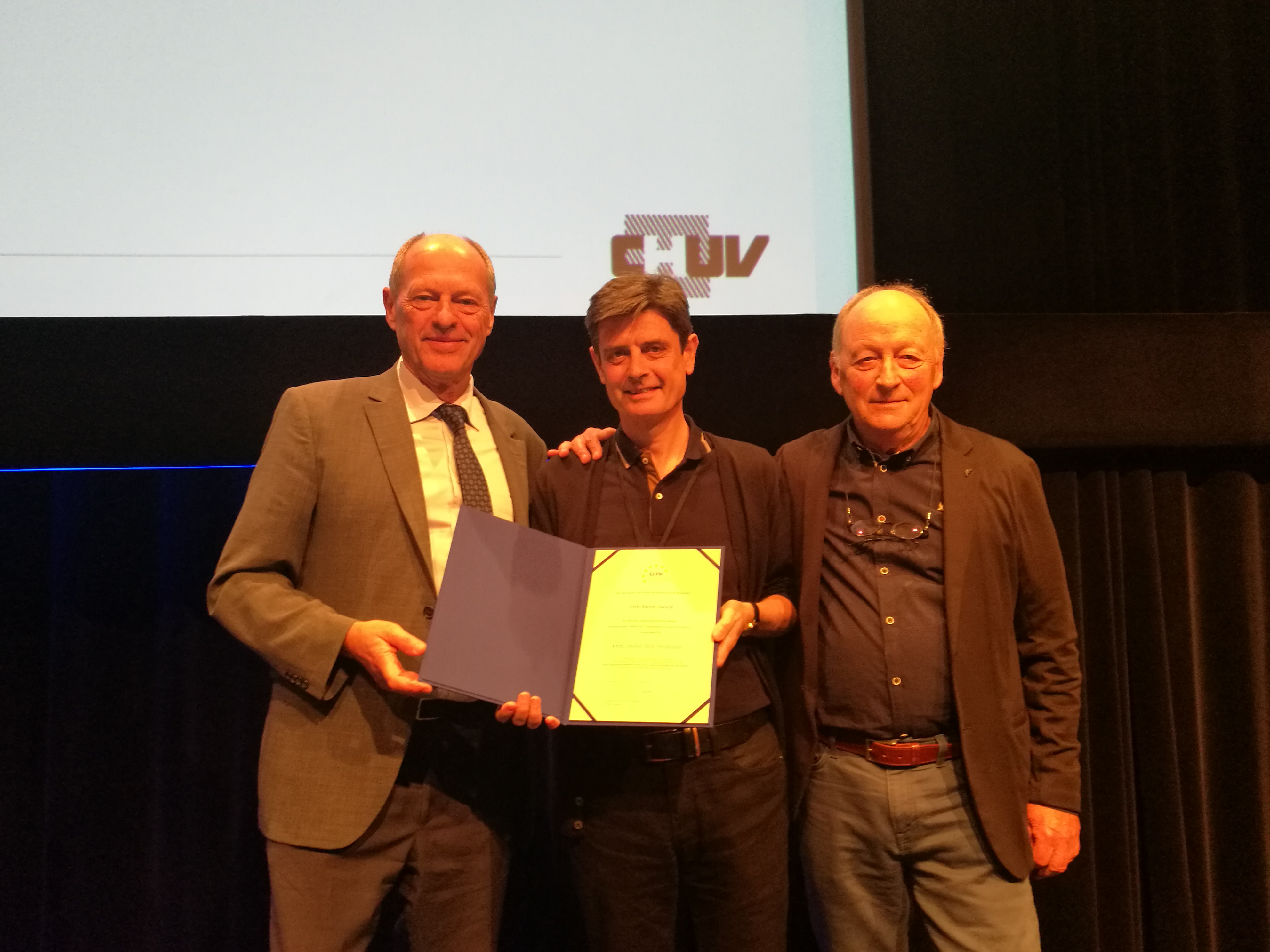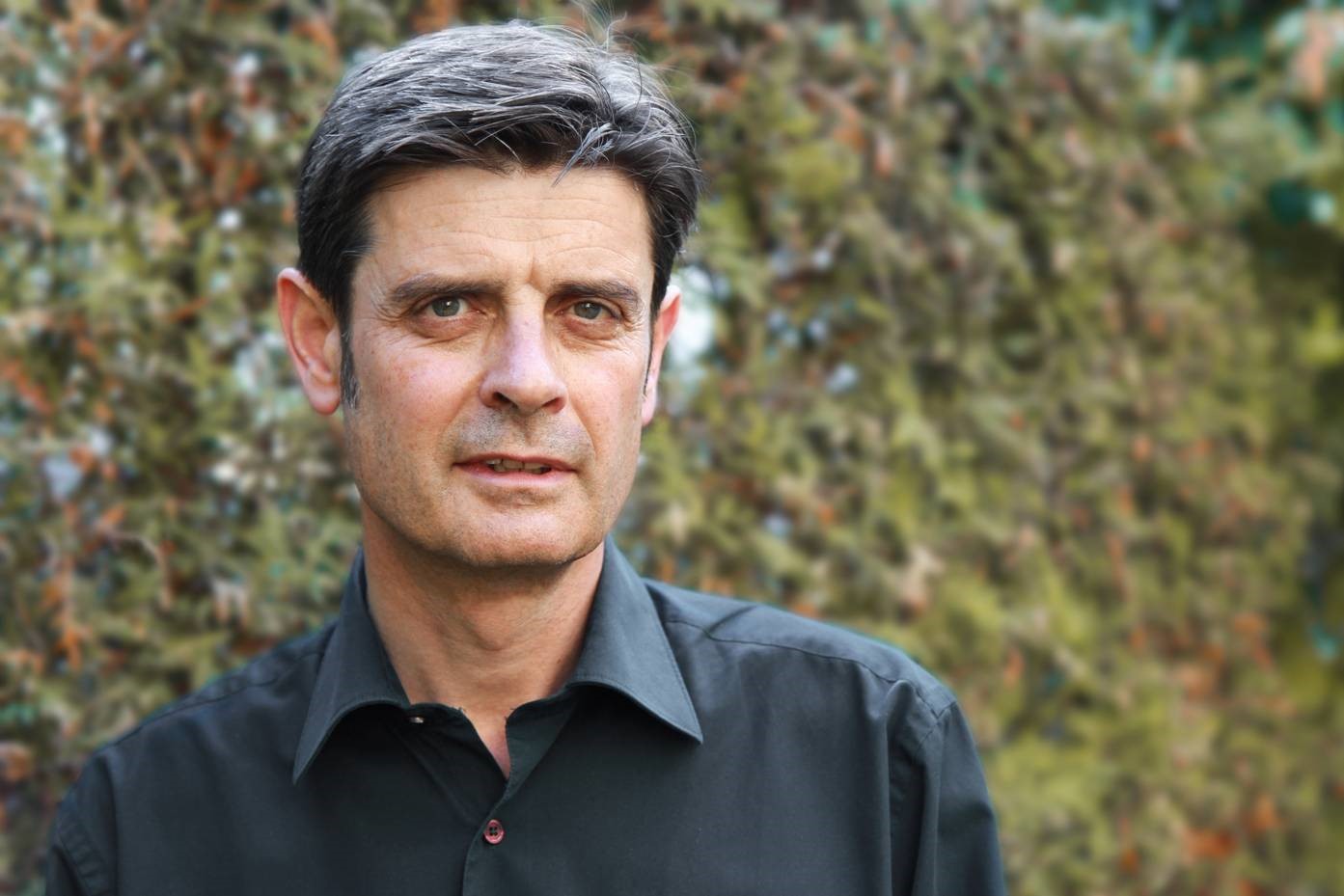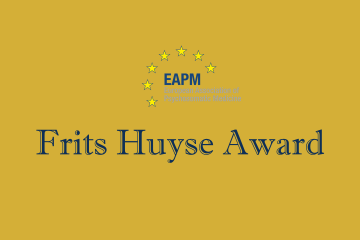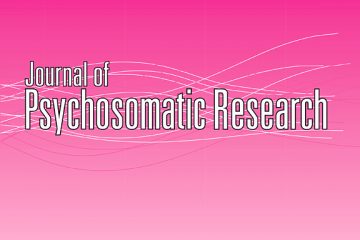
Prof. Wolfgang Söllner, Prof Fritz Stiefel and Prof. Frits Huyse
read the laudatio written by Prof. Frits Huyse and Prof. Wolfgang Söllner
Interview with Professor Fritz Stiefel – winner of the 2019 Frits Huyse Award
Fritz Stiefel, chair of the Department of Consultation-Liaison Psychiatry at Lausanne University Hospital, and winner of the 2019 Frits Huyse Award.
Interview by Meike Shedden-Mora, May 2019
Professor Stiefel, how do you feel winning about this award?

Fritz Stiefel
Joyful and grateful. Joyful because the award is a recognition for a way of conceiving liaison psychiatry, and grateful, because the award makes me look back and think of all the different people who influenced my thoughts and co-constructed my clinical and academic work.
With your work, you have been moving forward the field of consultation-liaison psychiatry by integrating psychotherapeutic interventions for the chronically ill in the hospital setting. In your experience, what are the key aspects if you want to apply psychotherapy in a hospital setting? What challenges and limitations have you been facing in your clinical work and research?
The key element for integrating psychotherapeutic interventions in the medically ill is a sound theoretical framework, which is adapted to the setting and the specific needs of the patients. We conduct long-term psychotherapy in the medically ill, but often we need to intervene on the short term. Milton Viederman’s Psychodynamic Life Narrative is an example of a theoretical framework for such a short-term intervention. However, the concepts you rely on might also come from outside the psychotherapeutic field. I also find Paul Ricoeur’s idea of a balance between permanence and change – which in the medically ill very rapidly moves towards change on the costs of a feeling of permanence – very helpful to understand psychological challenges in the medical patients and to find ways to reestablish an equilibrium. Or consider the phenomenological approaches, which attempt to understand the very existential dimensions of the lived experience of illness and the consequences of the disease-induced bodily changes, such as the modifications of our senses with the associated changes in the perception of space, time and the relation to self and others…
Could you comment on your current projects that you are excited about?
Since a long time collaborators with a background in social sciences (anthropology, linguistics, philosophy …) work in our liaison service, who challenge our ways of conceiving our clinical work, who help us with their competence in qualitative methods to conduct our research and who expand our teaching by raising awareness towards the contextual factors surrounding the medical universe. To name two projects I feel excited about: one research line, which has as its object the subject of the physician, with several different projects investigating the lived experience of physicians (his perception of his “inner” and “outer” world assessed by means of narrative facilitators derived from methods used in visual sociology and psychology). We observed, for example, that internal medicine residents perceive their day as a run through a rapid succession of distinct episodes, which leads them to constantly anticipate what comes next and to have the impression of being slowed down by certain tasks, but also by patients; as a consequence they feel torn between doing things fast or doing things well. Another research line aims to find new ways to look into patient-clinician communication, for example by means of ethnographic studies, by developing more comprehensive and contextualized outcome measures of communication training, or by assessing collusions occurring between patients and physicians. We found, for example, that the internet-informed chronic patient is rather a myth: patients who ask many questions about treatment, symptoms and/or lead the consultation are not the well informed, they are anxious.
Now I would like to talk about your personal decision to become involved in consultation-liaison psychiatry.
Why did you become interested in consultation-liaison psychiatry?
Was there a ‘career-changing moment’ during your professional life?
During my years as a medical student, I realized that medicine focused – at that time – exclusively on the biological aspects of disease. This impression was confirmed later when I worked as a resident in internal medicine and oncology. This observation motivated me to become interested in psychosomatic medicine. Professor Senn, the Chief of oncology in St. Gallen, who had a holistic view on patients, encouraged me and supported me a lot, despite the fact that I finally did chose not to stay in his pioneering palliative care unit. It was also he, who helped me to obtain a two-year young investigator grant from the Swiss National Foundation, which allowed me to conduct a research fellowship in psycho-oncology at Memorial Sloan-Kettering Cancer Center in New York. The career-changing moment was the encounter with Milton Viederman, who worked in the nearby New York Hospital as a psychoanalytically trained liaison psychiatrist; I had the privilege to participate in his rounds. He was so inspiring, clinically gifted and humane, I immediately strived to become like him, and thus decided to undergo psychoanalysis and to become a liaison psychiatrist. I strongly believe that we need in teaching excellent clinicians who serve as role models, and who have the relational qualities, which enable them to motivate students and to transmit their craft.
You are both a brilliant researcher and a skilled practitioner. How do you balance your research work with your clinical work?
I think I am a good clinician and a good enough researcher. Research without clinic seems to me meaningless, as is clinic without a constant interrogation of one’s practice. In order to be able to function as chief of service, I restrict my clinical work to about 10 hours per week. Many of my patients are stable enough for psychotherapy, a few need a more comprehensive approach, with interventions by social work, and at times psychiatric emergency interventions and hospitalizations.
Could you please share your vision for the future of consultation-liaison psychiatry and Psychosomatic Medicine?
My vision is that liaison psychiatry and psychosomatic medicine cannot restrict its focus on the patient. (i) It has to expand its academic view on the clinician, the institutional context and the social and societal dimensions of medicine; the dominant discourses on cancer survival might serve as an example of how context influence patients and clinicians, and the practice of oncology and psycho-oncology. (ii) In order to expand its view, liaison psychiatry thus has to integrate the social sciences, as mentioned before. (iii) And liaison psychiatry should complement its clinic by liaison research, which evaluates not only our liaison activities, but also investigates the clinician, the patient-clinician encounter, the practice of medicine and the surrounding contextual factors, which shape what takes place in the medical universe.
read the laudatio written by Prof. Frits Huyse and Prof. Wolfgang Söllner



0 Comments